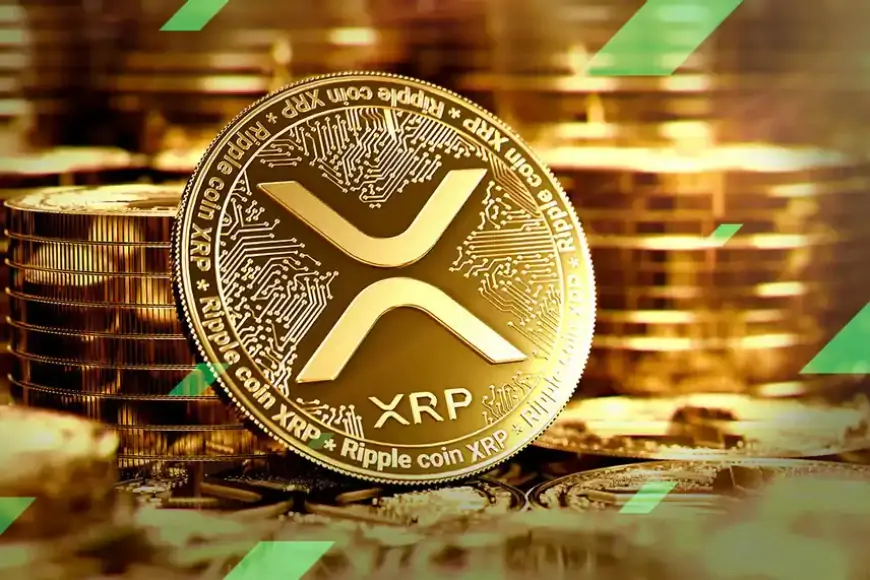Ripple (XRP) crypto review: Complete guide in 2024
Explore the latest insights on Ripple (XRP) cryptocurrency, including its features, performance, and market trends in our comprehensive review.

Our Verdict
Our Verdict
Ripple (XRP) is a digital payment protocol and cryptocurrency created to facilitate fast, low-cost international money transfers. Ripple Labs, the company behind Ripple, developed the XRP Ledger, a decentralized blockchain designed to provide secure and instant financial transactions. Unlike many other cryptocurrencies, Ripple focuses primarily on serving the financial services industry by providing solutions for cross-border payments, remittances, and currency exchange.
 Pros
Pros
- Transaction speed
- Consensus algorithm
- On-Demand Liquidity (ODL)
- Bank and financial institution adoption
 Cons
Cons
- Control over network
- Ownership concentration
- Focus on cross-border payments

Starting price
$2,388Facilitation of cross-border payments
YesProviding liquidity for financial institutions
XRP serves as a source of liquidity for financial institutionsUnderstanding Ripple (XRP)
Ripple crypto, developed by Ripple Labs, powers a payment platform known as RippleNet. This platform facilitates swift and secure transactions, particularly in collaboration with financial institutions, addressing cost and time inefficiencies. Unlike traditional blockchain setups like Bitcoin, Ripple operates on the Ripple Ledger Consensus (RPCA) protocol, enhancing transaction speed without complex mining processes like proof-of-work or proof-of-stake.
A retelling of Ripple's past
Ripple traces its origins back to 2012 when founders Chris Larsen and Jed McCaleb established Ripple Labs with the vision of revolutionizing international payment systems. Despite pursuing this goal since 2004, it wasn't until 2012 that they introduced the Ripple Transaction Protocol (RTXP) and its associated cryptocurrency, XRP.
The efficiency of Ripple's technology attracted numerous investors and financial institutions, propelling XRP to become the third-largest cryptocurrency by market capitalization by 2017, trailing only Bitcoin and Ether. However, this rapid growth drew scrutiny from US regulators, notably the Securities Exchange Commission (SEC), which initiated legal proceedings against Ripple Labs for regulatory violations. Despite this legal challenge affecting XRP's price, Ripple's development persisted.
Ripple (XRP) continued to evolve through strategic partnerships with prominent banks and international financial institutions, including the National Bank of Egypt, BBVA in Spain, Cambridge Global Payments, among others.
How can one purchase Ripple (XRP)?
The acquisition of XRP occurs through various cryptocurrency platforms, each offering different services. Marketplaces specialize in selling cryptocurrencies held in their wallets, including Ripple tokens (XRP). Crypto exchanges enable the purchase of stored XRP coins and conversion of other cryptocurrencies into XRP. Additionally, XRP can be obtained on crypto platforms, where its purchase involves engaging in Contracts for Difference (CFDs) on Ripple, offering exposure to XRP with potential profits or losses based on market changes. We've identified three platforms where Ripple (XRP) can be purchased.
Kraken
Kraken has gained prominence for its exceptional security measures, standing out as one of the least impacted entities amidst the increasing attacks in the cryptocurrency sector. Ripple (XRP) is available for purchase on Kraken, and users can also trade it against other cryptocurrencies. The platform offers advanced trading features, enhancing the overall trading experience.
Coinbase
Coinbase, a prominent name in the crypto ecosystem, has focused on establishing a strong presence in the United States. Originating as an American company, it initially catered exclusively to American users before gradually expanding its services to other countries. Coinbase played a significant role in popularizing the purchase of cryptocurrencies like Ripple (XRP) using fiat currencies. The platform offers various payment methods, including credit cards and bank transfers. Users have the option to buy and securely store their cryptocurrencies on Coinbase.
Binance
Changpeng Zhao, commonly referred to as "CZ," founded Binance, a leading platform in the cryptocurrency exchange sector worldwide. With over 300 cryptocurrencies available, including XRP, Binance offers users the opportunity to trade numerous pairs. Whether purchasing XRP via bank card or engaging in trades like BTC/XRP, SOL/XRP, SHI/XRP, among others, users appreciate Binance for its user-friendly interface and diverse trading tools.
What is the operational mechanism behind Ripple?
Ripple's technology, including its unique RPCA protocol for transaction validation, deviates from traditional blockchain principles. Unlike other cryptocurrencies that rely on proof of stake or proof of work, Ripple's ledger consensus involves transaction validation by a network of servers acting as validation nodes, without the need for manual intervention. These nodes automatically compare transaction versions and reach a consensus within seconds, making the process quicker and less energy-intensive than PoW or PoS. The Ripple platform heavily depends on its native cryptocurrency, XRP, which serves as a bridge currency between various fiat currencies. Through RippleNet, institutions and financial entities can seamlessly convert fiat currency to XRP and then to the target fiat currency, resulting in faster transactions and reduced costs. This streamlined process eliminates potential conversion expenses, highlighting the integral role of XRP in Ripple's ecosystem.
Should investing in Ripple (XRP) in 2024 be considered a wise choice?
Cryptocurrency investments, while offering attractive opportunities, require careful analysis and avoiding impulsive decisions driven by FOMO (fear of missing out). It's crucial to assess factors such as the crypto's reputation and market confidence before investing. These aspects make Ripple (XRP) an appealing investment option in 2024.
The utilization of RippleNet by financial institutions for transaction acceleration underscores the potential for XRP adoption. Additionally, considering price fluctuations, Ripple's (XRP) peak price was $3.021 in January 2018.
Investing in and holding XRP could yield returns in the short or medium term. Therefore, is Ripple a sound investment choice, and what does its future hold? Let's examine the advantages and disadvantages of XRP.














































